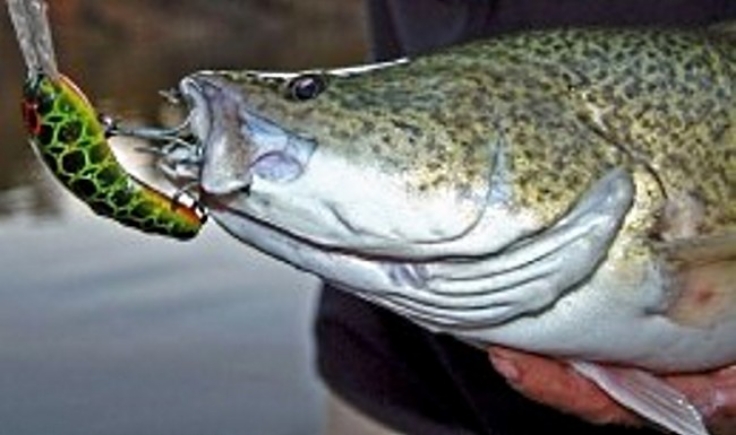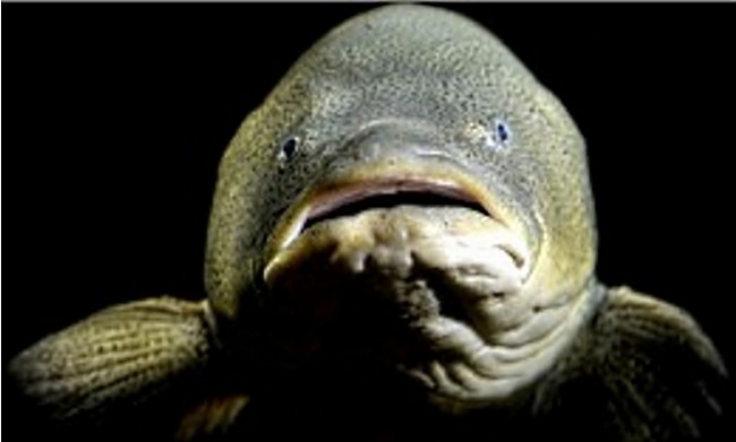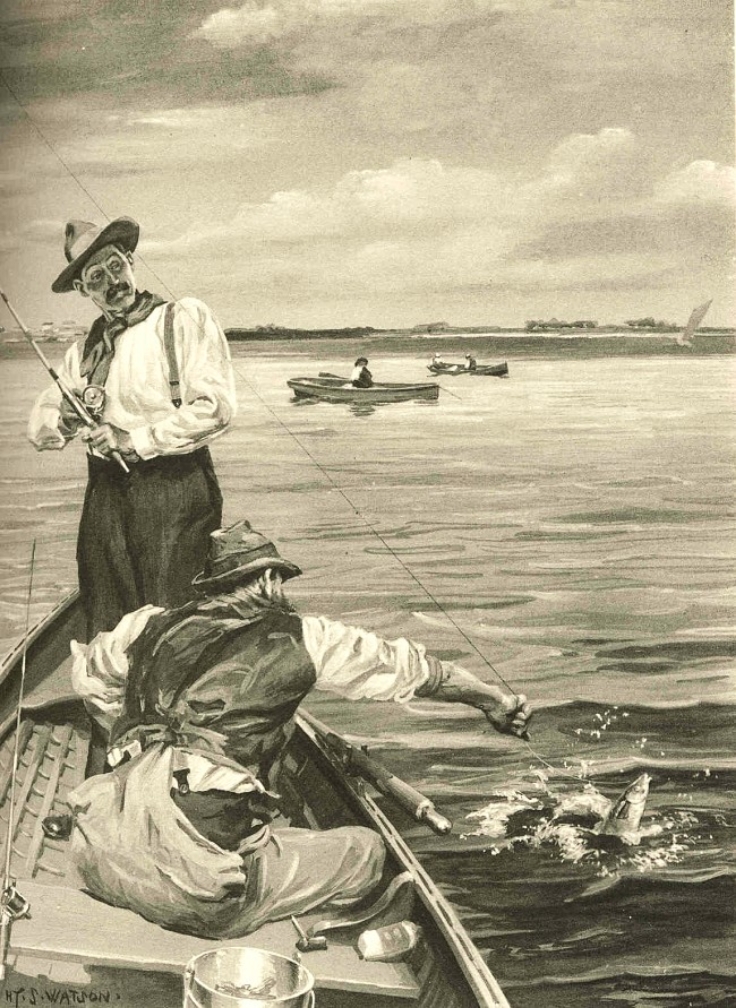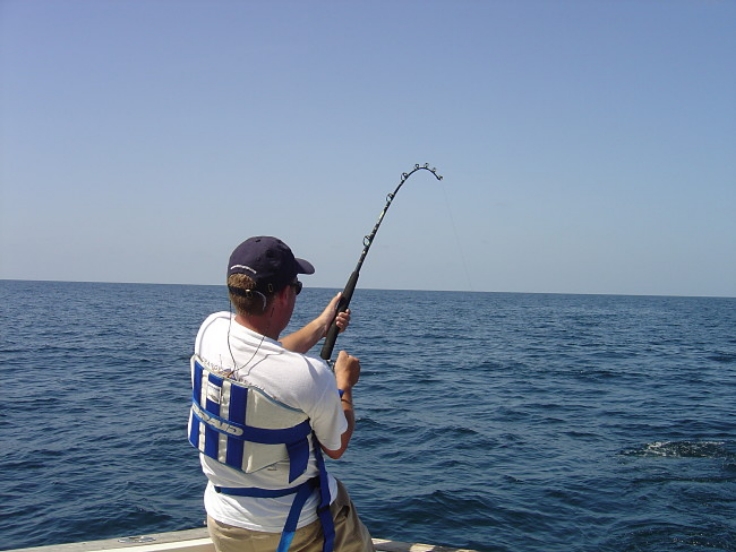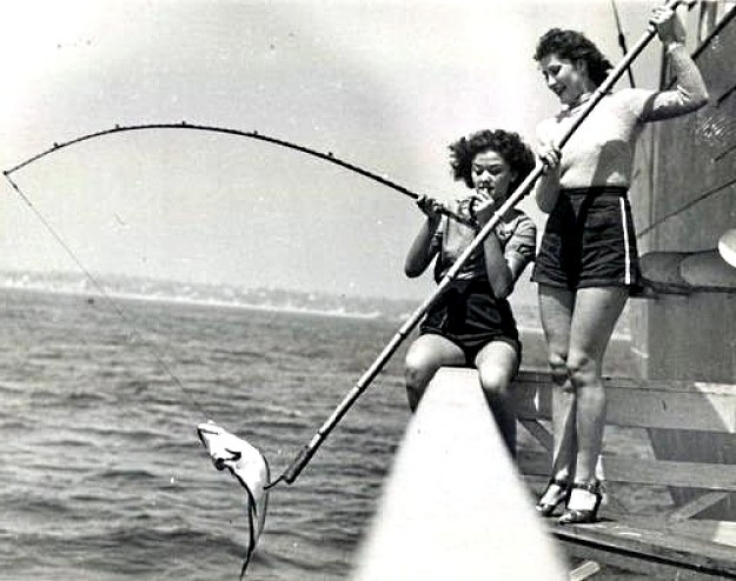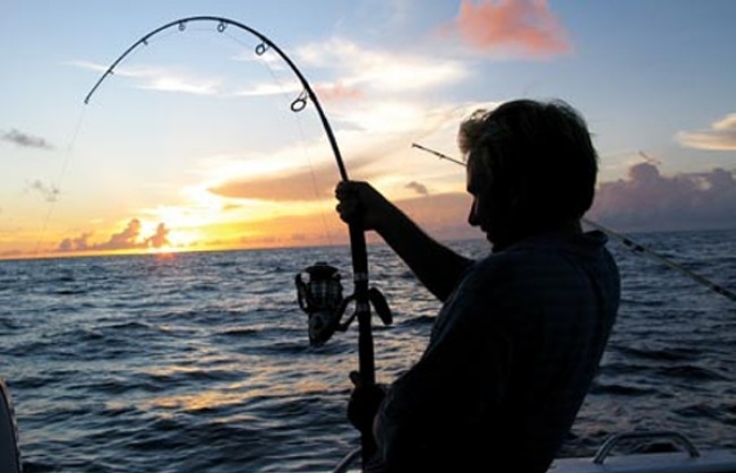Do Fish Feel Pain?
Whether fish feel pain or not, is a controversial topic. Many animal rights groups regularly try to get recreational fishing banned because it hurts the fish, which are 'played' on the end of a hook and line for minutes or hours. Playing the fish only prolongs the agony.
Most people claim that only humans and primates feel pain and that the myriads of cold-blooded creatures lack the critical parts of the human brain (such as the neocortex) that are required to feel pain.
Others claim that you have to be 'conscious' to feel pain. We are given anaesthetics before surgery so we don't feel the pain. We only start to feel pain when we wake up, and even then we can take pills to eliminate the pain. Are fish conscious? Do fish'know that they know' which is one definition of being conscious.
The concept is related to the real definition of what we mean by 'pain' and how it differs from reflex responses. To feel pain we need to understand the consequences of the damage or 'hurt' that we are aware of, not just the signals or reflexes delivered to our brains. If you accidentally place your hand on a hot surface the 'knee-jerk' reaction will mean that the hand is pulled away, long before you 'feel the pain'. Technically these reflex responses occur without any involvement of our brains. The warning signal is sent to the spinal cord, and the reflex response that is sent back, to pull the hand away, is also processed in the spinal cord. So is the hooked fish struggling at the end of your fishing line feeling pain? Or is it simply trying to escape as a reflex response to being hooked? Does the hook hurt it? How do you know? Does this trouble you? Should fishing be banned? Should you only eat fish killed humanely or is the notion of 'humane killing' itself a contradiction? Would you still eat fish if you had to kill it personally after looking deeply into its eyes? This article explores some of the issues.
Problem One: If fish feel pain how can they express it?
Fish have no facial expressions and emit no sounds apart from a few grunts and squeaks. This reminds me of an ancient comedy sketch by the British comedians Peter Cook and Dudley Moore. It related to reports that scientists had evidence that plants had nervous systems. The scene is a Vegetarian Restaurant and the waiter is taking the order from two guests. One patron orders a dish of mushrooms with mixed boiled vegetables including carrots and potatoes. After the order is taken the waiter remarks: "Do you know the sound that a carrot makes as it is being wrenched from the soil, severing all their little roots" and the waiter emits a piercing scream.
The problem is that if fish feel pain we have no way of perceiving it, as you would be aware when seeing a child 'in pain'. They can't frown, they can't look sad, they can't cry, they can't moan and cry out with pain
Problem Two: The Difference between a Pain and a Simple Reflex
Do the fish respond to the hook stuck in their mouth because it is painful, or is their response simply a reflex? They may feel 'hurt' or 'discomfort' but is this pain. When you touch something hot, you pull your hand away immediately well before your brain makes you aware that it is painful. Your brain is not involved in pulling your hand away. It happens because of a reflex response via nerves in your spine. The heat stimulates the heat receptors in your hand. This triggers electrical signals that are sent to the spinal cord. Acting automatically, the spinal nerve centres send signals to the muscles required to pull your hand away. It has to happen very quickly and a conscious feeling of pain and making a conscious decision would be far to slow and we would have a severe burn injury. Later, the nerve centres in your spine sends an email to your brain and your conscious self. "Hey mate! Your hand has touched something hot and it can been pulled back, but there may be a burn involved from the heat that you can now feel. You better do something about it - remember how painful burns can be, and how long that take to get better".
So when something bad happens to a fish, such as being hooked or running into a log in the dark it reacts. But does it react because of a reflex? Does it feel that it has been hurt or damaged in some way and react without feeling pain as we feel pain? You can see that this is the problem.
Problem Three: Are Fish Conscious? Do fish 'Know that they Know?'
There are two parts to this:- Are fish conscious?
- Is consciousness required to feel pain?
Consciousness is a huge Philosophical Issue even in humans and there is ongoing debate about whether humans are the only animals that are conscious. Perhaps monkeys, apes, dogs and cats are conscious. But are fish conscious and what about a sponge, an oyster, a bacterium or a carrot or a tree? Can plants feel anything?
For a discussion of these issues See: Self Awareness, Consciousness, The Within of Things - Who are we Really?
If you believe that consciousness is required to feel pain then you need to prove or believe that fish are conscious. Now that is definitely a problem. Research has shown that rainbow trout appear to have "pain" receptors around their bodies that are virtually similar to humans. No such receptors were found in sharks - but that's another fishing story. But it is a huge step from pain receptors to consciously feeling pain.
Problem Four: Even in Humans the Feeling of Pain varies and can be Controlled and Suppressed
Even if pain requires consciousness, the relationship between the two is variable. Some patients with impaired consciousness may feel pain. Others may respond to 'pain' in various ways without being consciously aware of it. There is a theory that pain itself is highly variable and depends on us knowing the consequences. If we break a finger it hurts a lot, but how much pain we experience depends on us knowing the consequences. Is the break going to hurt for a long time, and how long are we going to suffer from not being able to use the hand properly.
Pain can be controlled by medication and by cutting nerves. The perception of pain also varies between individuals and is defined by the society in which we live. In some cultures, childbirth is not regarded as being less 'painful' than it is in Western Societies. Many people with chronic injuries can learn to suppress or control pain without medication. So pain varies and does appear to be under the control of our consciousness. So this is another problem.
Conclusion: The Jury is still out on whether Fish Feel Pain
So what do you think, and how does it affect whether you go fishing or eat fish? Do plants feel pain when they are pulled from the soil or plunged into boiling water without being put to sleep first?
If we are not vegetarians, we have to eat plants and other creatures, which involves the death of animals and plants.
If we are vegans we still have to kill plants for food, or someone else has to kill them for us to survive. Do plants feel pain?
But whether or not we believe that fish or other animals feel pain, most of us believe that we have a human responsibility to ensure that all living creatures are respected are not treated cruelly and do not feel unnecessary pain (if it exists) or suffering.
If you were shown irrefutable evidence that fish feel pain would you become a vegetarian and stop going fishing?
There are several positions that are a consequence of this:
- Even if you are convinced that animals don’t feel pain, you can still assert that you should be humane in all your treatment of animals by yourself and by others. If you eat meat or fish that you buy at the supermarket you may insist that the animals killed for you did not experience unnecessary discomfort. The same applies if you believe that animals feel pain but you don't become a vegetarian.
- Likewise animal ethics and belief in not being cruel to animals is ultimately not dependent on whether or not you believe that fish and other animals feel pain.
So what can you do next time you go fishing? Should you use very heavy gear and drag the fish in as quickly as possible to minimize the struggle time. Should you bang the fish on the head as soon as you land it to kill it.
Should you take some ice with you, and plunge the freshly-landed fish into the icy water. This will quickly slow the metabolism will down, and it will act like an anaesthetic. Many people do similar things with live crabs to avoid the cruelty of plunging them live into boiling water - But which way hurts more and causes more pain?
Is this worth thinking about.
What do you think?
